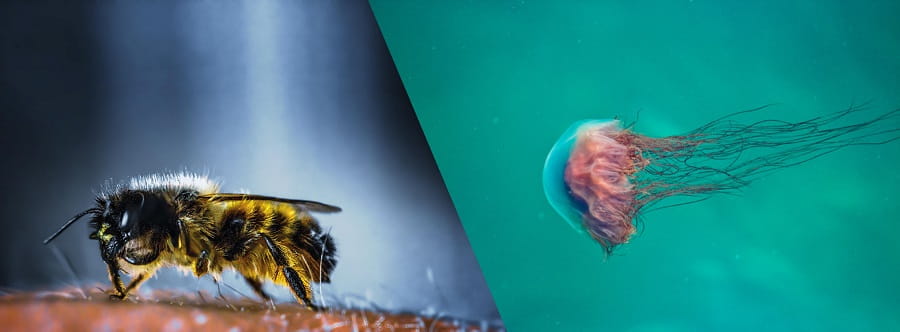
In the warmer weather when we're out and about more, so too are the jellyfish, snakes and bees
– increasing the potential for nasty stings and bites! While you can’t always avoid crossing paths with these little critters, it is helpful to ‘bee’ prepared!
Jellyfish
It may come as a surprise that jellyfish have no brain and no eyes – so they don't intend to sting! Instead, crossing paths with a jiggling jellyfish is just an unfortunate, yet common, coincidence.
Here are our tips for treating a jellyfish sting:
Do:
- Get out of the water
- Pick off any remaining tentacles (ideally with tweezers) and rinse with seawater
- In the tropics, douse stung area with vinegar for 30 seconds
- Outside of the tropics, use heat or hot water for 20 minutes
- Use cold for pain relief for all stings
Don’t:
- Put urine on the sting
- Rub the area
- Apply pressure bandages
- Don’t wash the area with fresh water
- Use vinegar for Bluebottle stings
- Apply ice directly to skin, place inside a dry plastic bag so no fresh water touches the stings
Bees
Here's what to do if you've been stung by a bee:
- Call emergency services if you have a known allergy
- Look to see if the stinger is still present (look for a small black dot at the sting site)
- Remove the stinger (you can use something hard like a credit card to swipe over the area)
- Ice the affected area (this helps with pain management)
Now that you’re armed with how to manage those pesky tentacle stings and bee stings, you’re all set to head out and safely enjoy yourself in spring and summer!
Of course, the other nasty bite you need to watch out for is a snake bite! Learn how to tackle that one at the link below:
